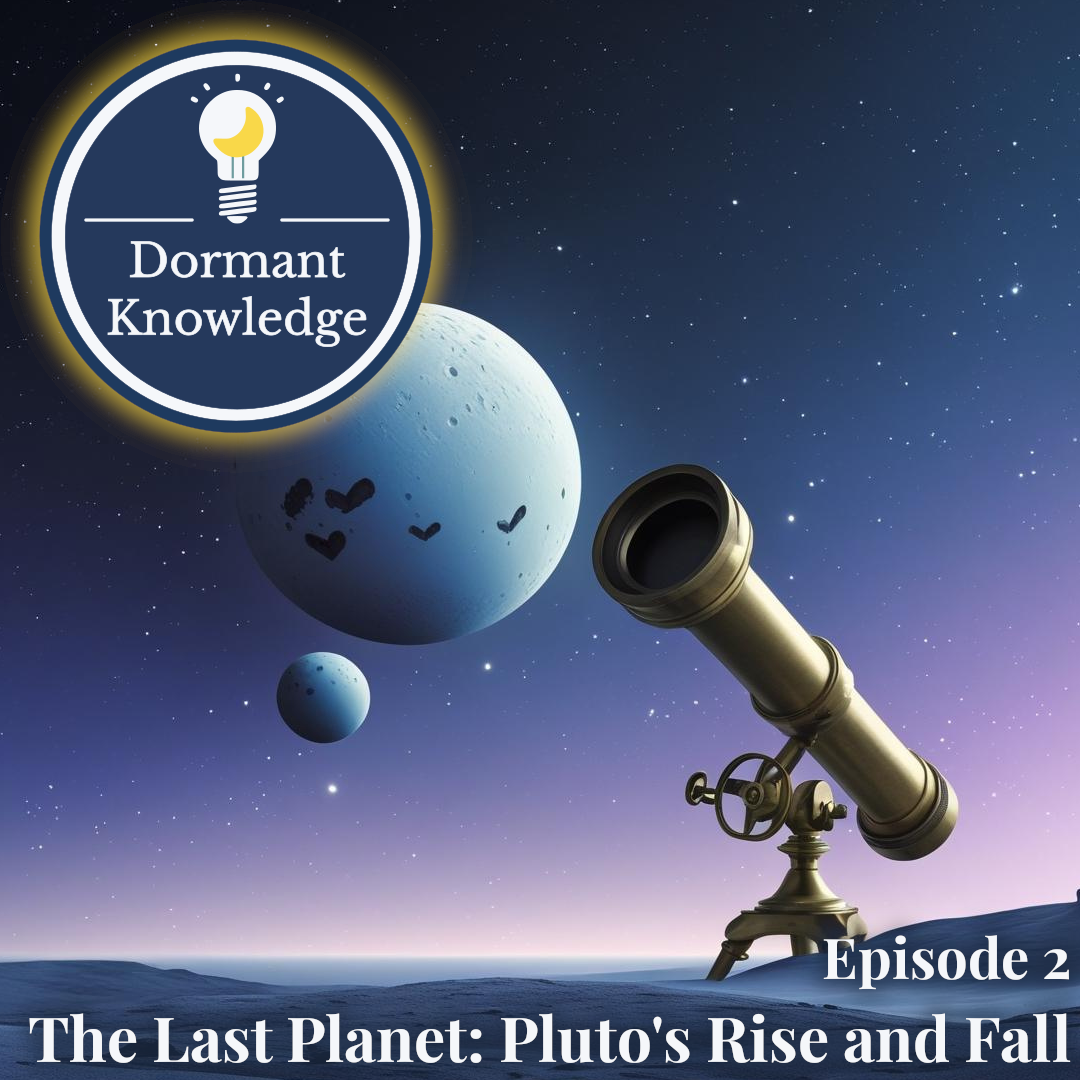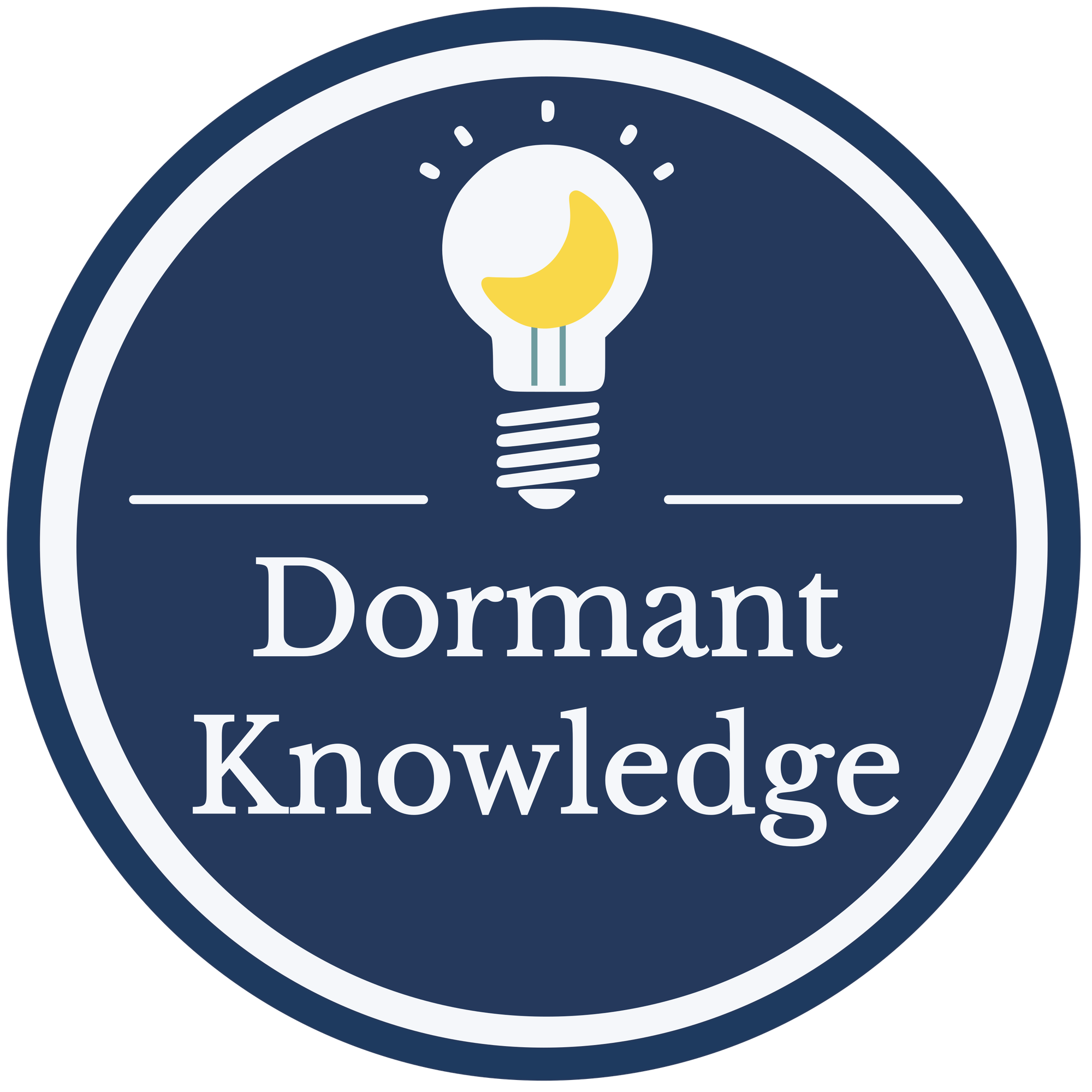Why Space Topics Make Perfect Sleep Podcast Episodes: The Science Behind Pluto's Calming Effect
There's something profoundly calming about contemplating the vastness of space, and science backs this up. Researchers have found that when we shift our perspective to cosmic scales our brains naturally enter what psychologists call "awe-induced mental quiet."

When we launched Episode 2 of Dormant Knowledge yesterday, exploring the fascinating story of Pluto's discovery and reclassification, something magical happened. Within hours, listeners were sharing how the gentle journey through our solar system's most distant dwarf planet had become their new favorite bedtime companion. But why do space topics work so brilliantly for educational sleep podcasts?
The answer lies in a perfect storm of psychological, neurological, and narrative factors that make astronomical content uniquely suited for learning while you drift off to sleep.
The Psychology of Cosmic Scale
There's something profoundly calming about contemplating the vastness of space, and science backs this up. Researchers have found that when we shift our perspective to cosmic scales (thinking about planets, stars, and the immense distances between them) our brains naturally enter what psychologists call "awe-induced mental quiet."
For instance, thinking about how long it takes light from the Sun to reach Pluto (over 5 hours), or how Pluto takes 248 Earth years to complete one orbit, can give a feeling a sense of peaceful perspective. These vast timescales have a meditative quality that helps quiet the racing thoughts that often keep us awake.
Dr. Michelle Shiota, a researcher at Arizona State University who studies the emotion of awe, explains that "When we feel awe, we are less influenced by our expectations. We generally have a tendency to see what we expect to see, but awe can let us focus on collecting information about what is actually there." ('Research Takes Your Breath Away', ASU News 2019) This is exactly what makes space content perfect for a sleep podcast designed to help busy minds unwind.
Why Pluto Specifically Works So Well
Our recent episode on Pluto demonstrates why this particular celestial body makes ideal sleep podcast material. Unlike more dynamic space topics (think black holes or supernovas), Pluto's story unfolds at a human pace that mirrors the gentle rhythm perfect for bedtime learning.
Consider these naturally calming elements from our Pluto episode:
The Discovery Story: Clyde Tombaugh's methodical search for "Planet X" in 1930 involved carefully comparing photographic plates night after night—a process that took months of patient observation. This deliberate, unhurried pace naturally translates into soothing podcast content.
Gentle Controversies: The 2006 reclassification debate isn't emotionally charged like political topics. Instead, it's an intellectual puzzle about definitions and scientific categories—complex enough to be interesting, gentle enough not to create anxiety.
Distant Beauty: Pluto exists in a realm so far from our daily experience that learning about it feels like gentle escapism rather than urgent information we need to process and remember.
The Neuroscience of Space Learning During Sleep
Recent neuroscience research reveals why space topics are particularly effective for educational sleep podcasts. When we're in the drowsy state between waking and sleeping, our brains are primed for what researchers call "diffuse attention". This is perfect for absorbing broad concepts rather than detailed facts.
Space content excels in this context because:
- Abstract concepts: Ideas like orbital mechanics or planetary formation don't require immediate practical application, allowing the brain to process them without stress
- Visual imagery: Descriptions of cosmic phenomena naturally engage the brain's visual cortex in a gentle, dream-like way
- Narrative flow: Space stories unfold over geological timescales, creating a natural rhythm that matches the brain's transition into sleep
Dr. Matthew Walker, in his book "Why We Sleep," notes that
When it comes to info processing, think of the wake state principally as reception (experiencing and constantly learning the world around you), NREM sleep as reflection (storing and strengthening those raw ingredients of new facts and skills), and REM sleep as integration (interconnecting those raw ingredients with each other, with all past experiences, and, in doing so, building an ever more accurate model of how the world works, including innovative insights and problem-solving abilities).
This makes Pluto's 4.6-billion-year story perfect bedtime material.
The Science Behind Space as Sleep Aid
What makes space topics uniquely effective for educational sleep podcasts goes beyond just interesting content. Research in environmental psychology shows that "spacious" mental environments, like imagining vast cosmic distances, activate the parasympathetic nervous system, which promotes relaxation and sleep.
When listeners imagine Pluto's lonely orbit at the edge of our solar system, or picture the slow dance of its moons Charon, Nix, and Hydra, their minds naturally shift into what researchers call "soft fascination", with attention that's engaged but not effortful.
This is distinctly different from other educational topics that might create "hard fascination" (like intense historical conflicts) or practical anxiety (like personal finance). Space content sits in the sweet spot of being intellectually engaging without being emotionally activating.
How We Craft Space Content for Sleep
Creating effective space content for a sleep podcast requires specific techniques that we've refined in Dormant Knowledge:
Pacing: We deliberately slow down when describing cosmic phenomena. Where a typical educational podcast might rush through Pluto's orbital characteristics, we linger on each detail, allowing time for mental imagery to develop.
Sensory Language: Rather than just stating facts, we use descriptive language that helps listeners visualize floating through space, feeling the cold emptiness, or imagining the pale sunlight at Pluto's distance.
Human Connection: We weave in the human stories—like young Clyde Tombaugh's dedication or the astronomers' debates—that make abstract cosmic concepts feel personally meaningful without being stressful.
Natural Transitions: Space topics flow naturally into each other. In our Pluto episode, we seamlessly move from discovery to orbital mechanics to the reclassification debate, creating a gentle narrative arc.
Beyond Pluto: The Future of Space Sleep Learning
The success of our Pluto episode opens up exciting possibilities for future space-themed sleep podcast content. Topics we're considering include:
- The Moons of Jupiter: Perfect for exploring the concept of entire worlds we'll never visit
- The Voyager Missions: Humanity's farthest-reaching journey told at a contemplative pace
- The Formation of the Solar System: 4.6 billion years of gradual change, ideal for bedtime storytelling
- The Search for Exoplanets: Gentle wonder about distant worlds and the possibility of life
Each of these topics shares Pluto's magical combination: fascinating enough to engage the curious mind, vast enough to provide perspective, and gentle enough to accompany the transition into sleep.
Making the Most of Space Sleep Learning
For listeners who want to optimize their experience with space-themed sleep podcast episodes, here are some tips based on our research and listener feedback:
Create a Cosmic Environment: Dim lighting and comfortable temperature help you imagine floating in the peaceful void of space.
Let Your Mind Wander: Don't feel pressure to remember every detail. The goal is gentle learning that happens naturally as you relax.
Embrace the Timeline: Allow yourself to think in cosmic scales. When Deb mentions that Pluto takes 248 years to orbit the Sun, let that vast timeframe wash over your daily concerns.
Visual Imagination: Space content is particularly effective when you allow yourself to visualize the scenes being described. Picture yourself floating past Pluto, observing its icy surface and distant Sun.
Frequently Asked Questions About Space Sleep Podcasts
Q: What makes a space topic suitable for sleep learning? A: The best space topics for sleep podcasts combine intellectual interest with emotional calm. Topics like planetary discovery, slow celestial mechanics, and cosmic timescales work better than dramatic events like asteroid impacts or stellar explosions.
Q: How is this different from other educational sleep podcasts? A: Space content uniquely provides perspective and awe without urgency. Unlike historical conflicts or scientific controversies that might create tension, space topics offer pure wonder that naturally promotes relaxation.
Q: Do listeners actually learn while falling asleep to space content? A: Research shows that the drowsy brain is particularly good at absorbing abstract concepts and spatial relationships. Many listeners report better understanding of cosmic scales and planetary relationships after space-themed sleep podcast episodes.
Q: What if space topics don't interest me normally? A: Space content works for sleep learning even if you're not typically interested in astronomy. The vast scales and gentle pace provide psychological benefits regardless of your enthusiasm for the subject matter.
The Bigger Picture
As we continue developing Dormant Knowledge as the premier educational sleep podcast, space topics like our Pluto episode represent a perfect example of content that serves multiple purposes: genuine education, effective sleep aid, and pure wonder.
The response to yesterday's Pluto episode confirms what sleep researchers have suspected: when we combine fascinating educational content with the natural human fascination with space, we create something uniquely powerful for bedtime learning.
Whether you're a lifelong space enthusiast or someone who simply wants to fall asleep learning something beautiful, space-themed sleep podcast episodes offer a gentle journey into knowledge that respects both your curiosity and your need for rest.
Ready to experience the calming effect of cosmic learning? Episode 2: Pluto is available now on all major podcast platforms. Sweet dreams, and happy learning.
Or view full information about the episode:

About Dormant Knowledge: We're the educational sleep podcast for curious minds who want to learn fascinating topics while gently drifting off to sleep. Follow us @dormantknowledge on Instagram and Facebook, or @drmnt_knowledge on X. Visit dormantknowledge.com for episodes, transcripts, and more sleep learning resources.





